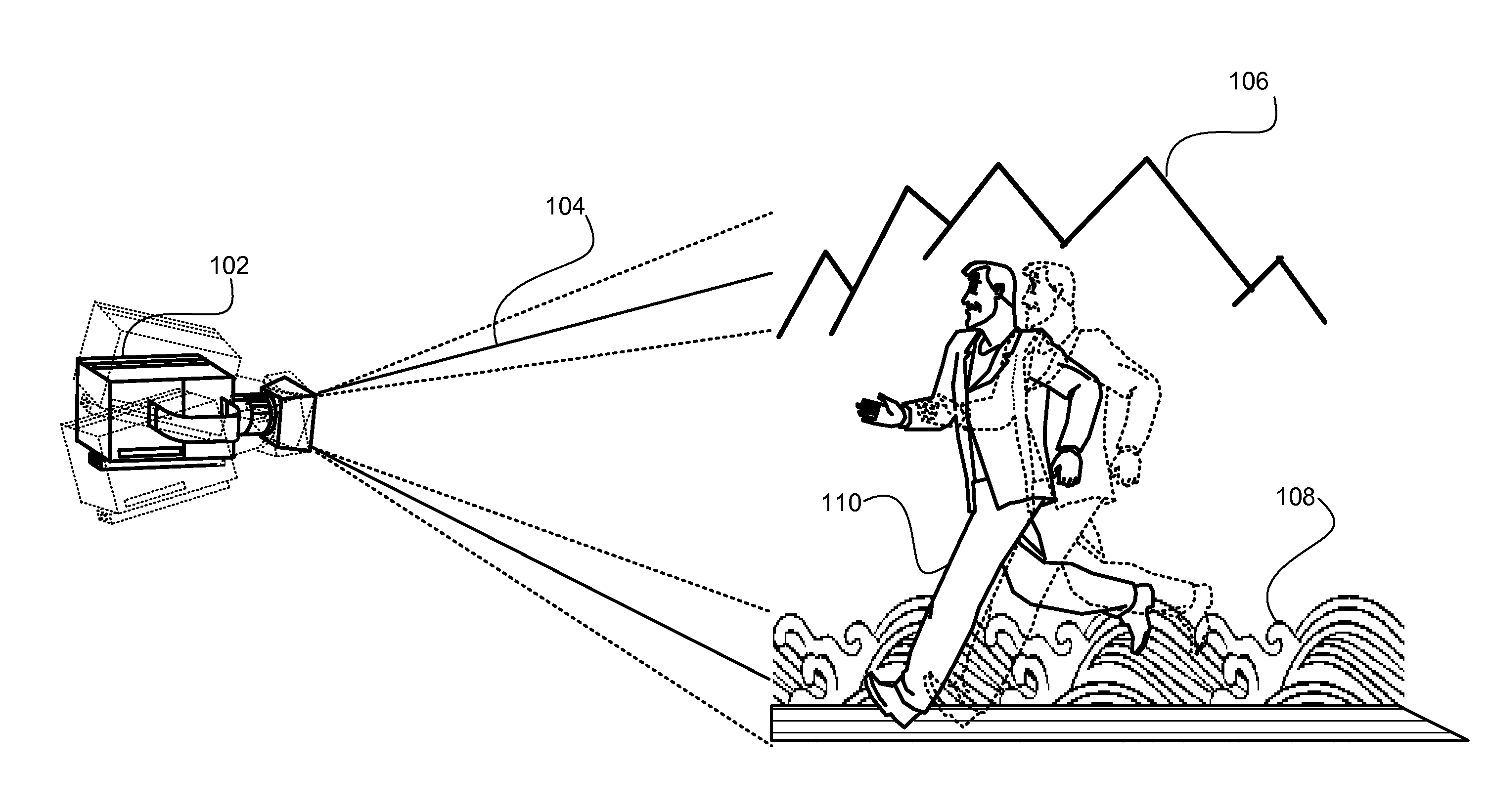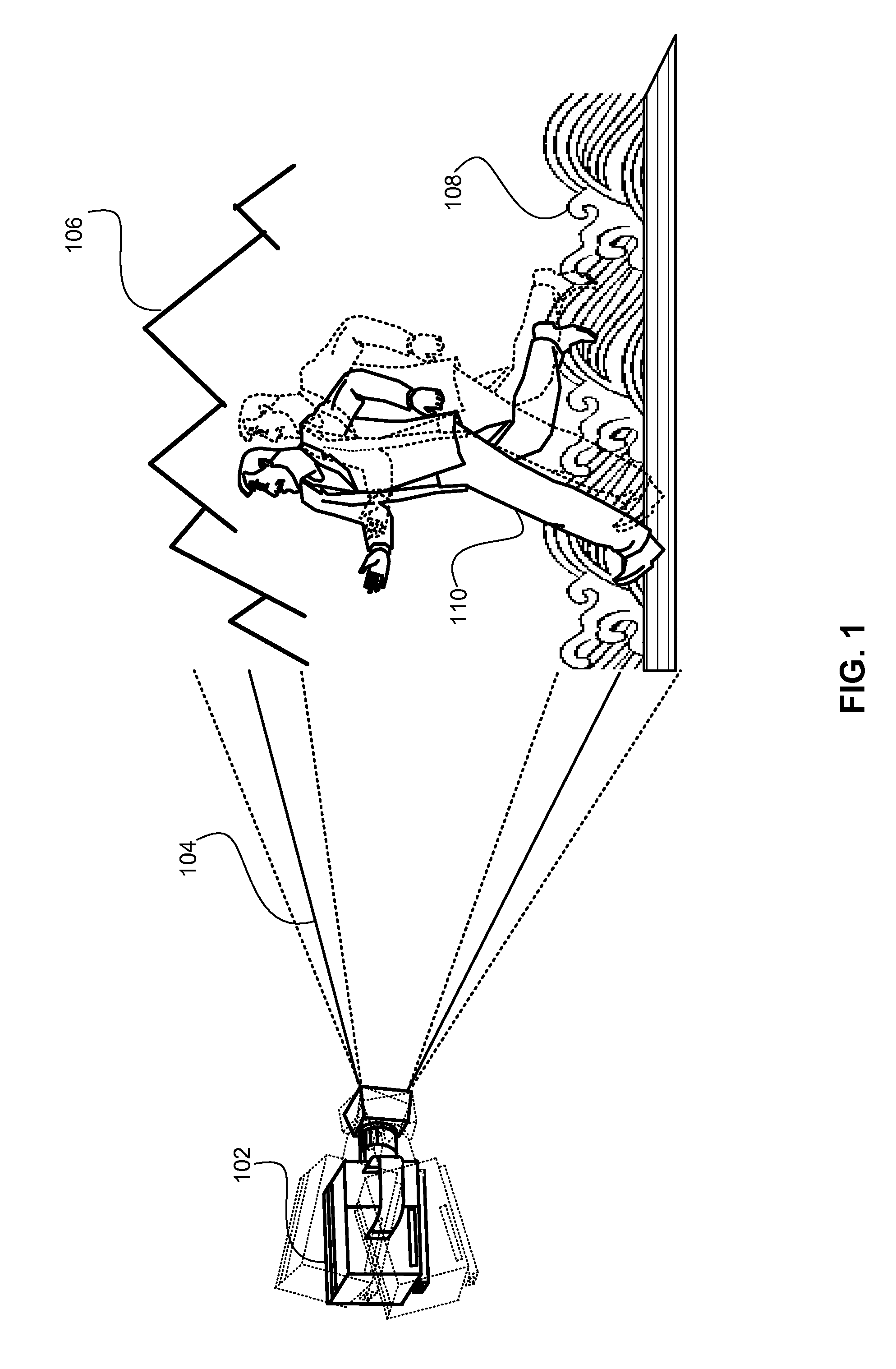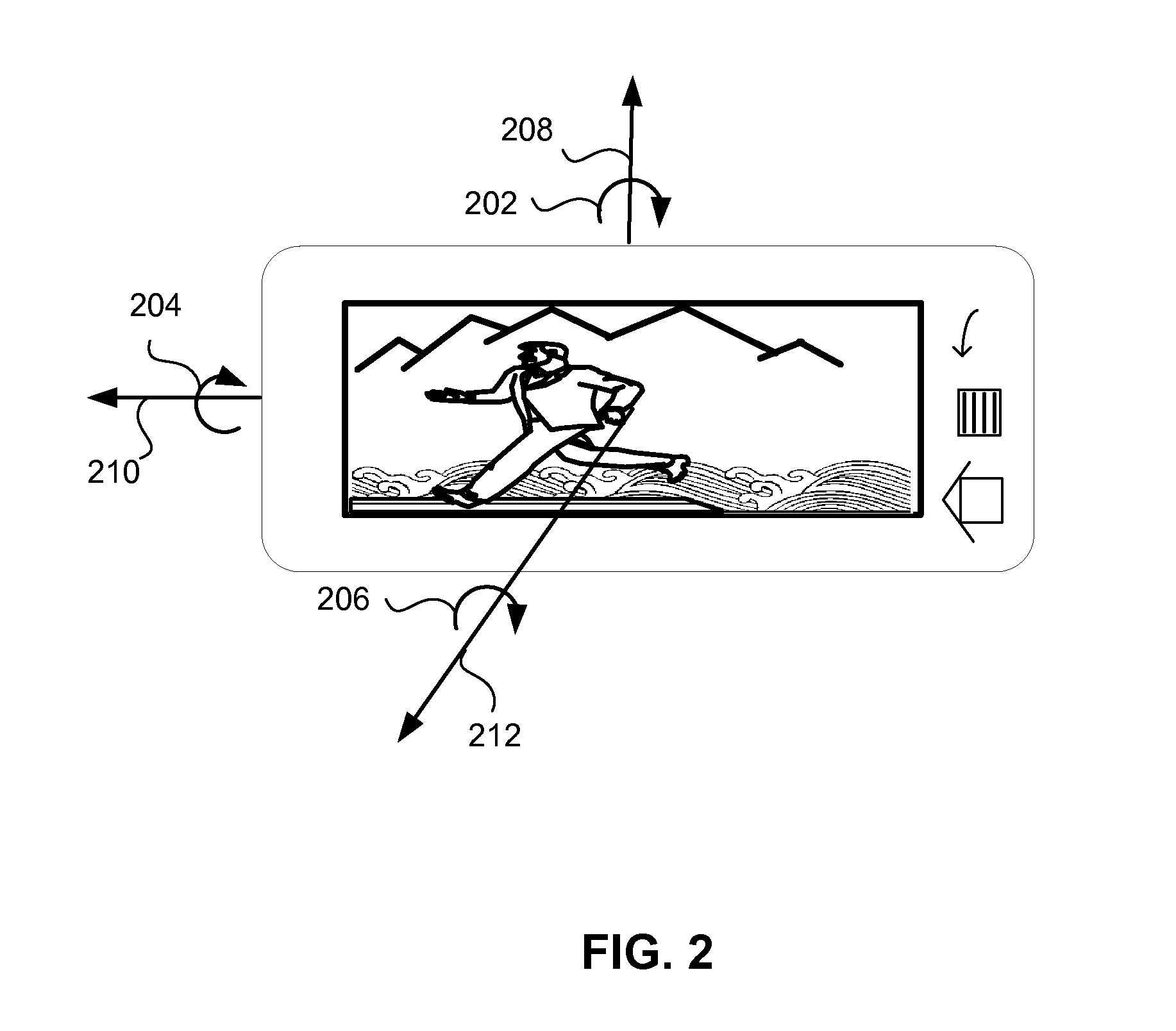Sensor aided video stabilization
a technology of video stabilization and camera, applied in the field of sensor aided video stabilization, can solve the problems of unfavorable camera motion and subject movement in the field of view, cannot distinguish between camera motion and subject movement, and cannot be used in the related art. , to achieve the effect of reducing image blur, reducing image blur, and reducing the effect of shift blur
- Summary
- Abstract
- Description
- Claims
- Application Information
AI Technical Summary
Benefits of technology
Problems solved by technology
Method used
Image
Examples
Embodiment Construction
[0049]Techniques for video and image stabilization are provided. Video stabilization aims to stabilize hand-held videos to eliminate hand tremor and shake. Camera shake can be minimized using known image analysis techniques to minimize offsets between consecutive frames of a video. However, all these techniques suffer from an inherent limitation that they cannot distinguish between camera motion and subject motion. Furthermore, these techniques are affected by motion blur, changes in lighting conditions, etc.
[0050]Integrated inertial MEMS sensors have recently made their way onto low-cost mobile devices such as consumer cameras and smart phones with camera capability and provide an effective way to address image distortion in videos and pictures. Accordingly, techniques for video and image stabilization provided herein utilize sensor information for improved stationary object detection. Gyroscopes, accelerometers and magnetometers are all examples of such sensors. Especially, inerti...
PUM
 Login to View More
Login to View More Abstract
Description
Claims
Application Information
 Login to View More
Login to View More - R&D
- Intellectual Property
- Life Sciences
- Materials
- Tech Scout
- Unparalleled Data Quality
- Higher Quality Content
- 60% Fewer Hallucinations
Browse by: Latest US Patents, China's latest patents, Technical Efficacy Thesaurus, Application Domain, Technology Topic, Popular Technical Reports.
© 2025 PatSnap. All rights reserved.Legal|Privacy policy|Modern Slavery Act Transparency Statement|Sitemap|About US| Contact US: help@patsnap.com



